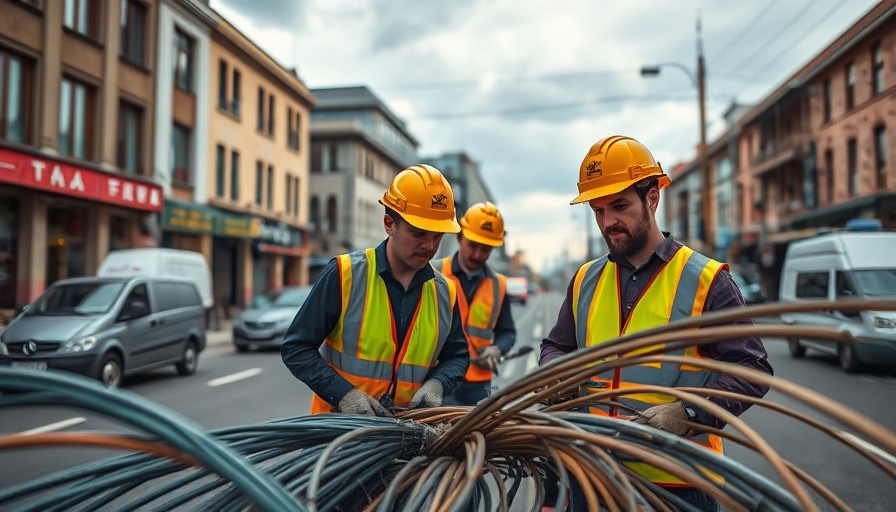
Understanding Broadband Right-of-Way Charges in Nigeria
As Nigeria navigates its ambitious goal of achieving 70% broadband penetration by the end of 2025, inconsistencies surrounding Right-of-Way (RoW) charges present significant challenges to internet connectivity across the country. The current landscape reveals a puzzling array of fees varying significantly by state, creating hurdles for telecom providers eager to expand fiber optic networks.
What is Right-of-Way?
Right-of-Way allows telecom companies to lay fibre cables in public spaces, a crucial component for rolling out broadband infrastructure. In 2013, the National Economic Council proposed a benchmark fee of ₦145 per linear meter to harmonize these efforts. However, many states have ignored this guideline, leading to exorbitant charges. States charge fees ranging from as low as ₦850 in the Federal Capital Territory to a staggering ₦9,477 in Ogun State, forcing operators to navigate a labyrinthine and costly system.
The Impact of Varying RoW Charges
Such disparate charging affects not only the telecom companies but also everyday users who experience unreliable and costly internet access. For instance, Ogun’s high charges could deter investments necessary to improve local broadband access, thereby perpetuating the digital divide. With only 78,676 kilometers of fiber deployed, and at 45.4% penetration, over half of Nigeria’s 142 million internet users remain offline. In contrast, countries that subsidize or simplify their RoW processes have reported faster deployment and improved internet coverage.
Future Outlook: Can Nigeria Narrow the Digital Divide?
Nigeria’s aim of deploying an additional 90,000 kilometers of fiber by late 2025 could significantly boost internet connectivity if systemic issues like RoW charge discrepancies are addressed. Efforts to advocate for uniform fee structures and collaboration among states could enhance the scalability of broadband infrastructure across Nigeria’s multifaceted regions. As the technology landscape evolves, prioritizing accessible internet for all remains paramount in narrowing the digital divide.
Call to Action
Understanding the dynamics of Right-of-Way fees is crucial for encouraging investment in Nigeria's broadband future. Engaging with local policymakers to push for uniformity in RoW charges can significantly enhance Nigeria's connectivity landscape.
 Add Row
Add Row  Add
Add 




Write A Comment